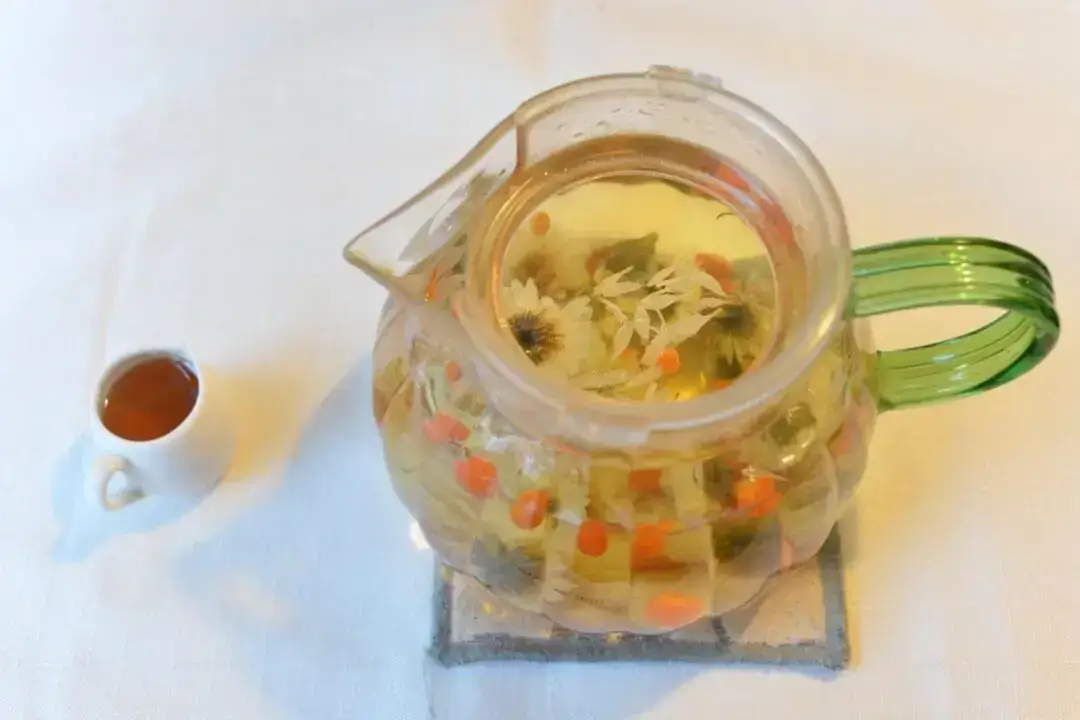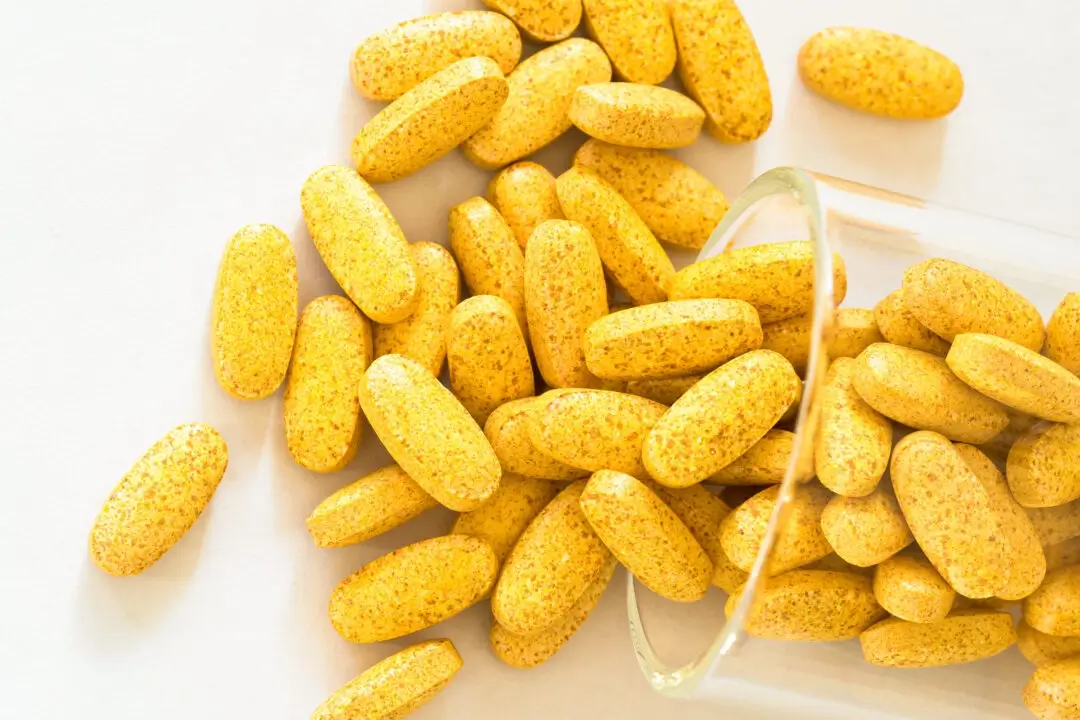
3 Essential Nutrients For Eye Health: Eating Right Trumps Supplements
Learn about the best foods for maintaining eye health from an expert of traditional Chinese medicine.
By: Naiwen Hu | The Epoch Times
The eyes are the windows to the soul and must be cared for diligently. To protect eye health, it’s essential to consume three key nutrients: lutein, anthocyanins, and vitamin C. Getting these nutrients from food is often more effective than relying on supplements.
Lutein is a vital component of the macula in the retina. It has antioxidant properties and protects against blue light, helping prevent age-related macular degeneration (AMD), cataracts, and retinal pigment diseases. This is especially beneficial for those who spend long hours looking at computers and phones.
Anthocyanins also provide significant benefits for eye health. They improve blood circulation in the eyes and help relieve eye strain from extended screen time. In addition, anthocyanins help keep the eyes moist, soothing symptoms of dry eye.
A British study that observed changes in the lenses of 324 pairs of female twins over 10 years found that those with vitamin C-rich diets had a 33% lower risk of worsening cataracts and had clearer lenses. However, taking vitamin C supplements may have the opposite effect. A Swedish study found that men who took high-dose vitamin C supplements long-term had a 36% increased risk of developing age-related cataracts, with the risk rising to 92% for men over the age of 65.
Let’s dive into some foods rich in eye-protecting nutrients. Hopefully, after reading this, you’ll feel inspired to cook with your loved ones. Not only can you boost your health and prevent eye issues, but you’ll also strengthen family bonds.
Lutein-Rich Vegetables
Green and yellow fruits and vegetables, such as pumpkin, spinach, carrots, mustard greens, sweet potato leaves, broccoli, oranges, tomatoes, and cabbage, are generally rich in lutein and zeaxanthin. The following three vegetables are especially high in lutein content:
- Spinach: Every 100 grams of raw spinach contains 7.45 milligrams of lutein and 0.46 millgram of zeaxanthin, which covers more than 70% of the daily recommended intake of lutein.
- Sweet Potato Leaves: Every 100 grams of raw sweet potato leaves contains a total of 14.7 milligrams of lutein and zeaxanthin, exceeding the daily recommended intake.
- Pumpkin: Every 100 grams of raw pumpkin contains a total of 1.5 milligrams of lutein and zeaxanthin.
According to a test by Taiwan’s Ministry of Health and Welfare’s Food and Drug Administration, over 46% of lutein supplements on the market contain less than 80% of the labelled amount. It is recommended to obtain lutein from natural foods, as it is both safer and more economical.
There are also ways to increase the absorption of lutein from foods.
Green Vegetables + Fats
Lutein is a fat-soluble vitamin, so adding a bit of lard or olive oil when stir-frying spinach or sweet potato leaves can help the body absorb lutein more effectively. This not only boosts nutrition but also removes any astringent taste.
What’s your go-to habit or tip for maintaining healthy eyes? Share your best practices for eye care in the comments!
Eggs + Corn
In addition to vegetables and fruits, eating eggs is an effective way to supplement lutein. While the lutein content in eggs is lower than that of the two vegetables mentioned above, the body absorbs lutein from eggs more efficiently than from green vegetables. A great breakfast recipe to boost lutein intake is a corn and egg pancake. Combining corn and egg yolks provides both plant-based and animal-based lutein, maximizing the nutritional benefits.
Eat Berries to Hydrate the Eyes
What should you do if prolonged screen time causes dryness or redness in your eyes? Eating blueberries after meals can help keep your eyes moist and prevent dryness.
Japanese Scientists Develop Groundbreaking Drug That Grows New Teeth
The foods with the highest anthocyanin content are berries, such as blueberries and cranberries. Blueberries not only protect the cells and micro-capillaries around the eyes, relieve eye fatigue, and improve vision, but they also offer multiple health benefits, including anti-aging effects, lowering blood pressure, and protecting the heart.
Boost Vitamin C by Eating More Bell Peppers
Fruits like guava, kiwi, lemon, and oranges are rich in vitamin C. But you don’t have to rely solely on fruit—there’s another great vitamin C source: colourful bell peppers. Fresh orange bell peppers contain 158 milligrams of vitamin C per 100 grams, over twice as much as lemons! They’re also rich in flavonoids, which help prevent the breakdown of vitamin C when heated.
Bell peppers come in red, yellow, and orange varieties. Try adding them to pasta, stir-frying them with shrimp, or sautéing with king oyster mushrooms. They’re delicious and can help prevent cataracts.
Relieve Eye Fatigue With a Cup of Tea
What tea should you drink when your eyes are tired? A great option is chrysanthemum goji berry tea. This is especially beneficial for office workers who spend the whole day in front of a computer. A cup of this tea in the afternoon can help alleviate fatigue and relieve dry eyes.
A small randomized controlled trial conducted by the University of California–Davis found that eating goji berries five times a week for three months significantly increased macular pigment density, helping prevent AMD. Chrysanthemum extract also has antioxidant properties and has been shown to protect the retina in animal experiments.
According to traditional Chinese medicine (TCM), the eyes are closely linked to the liver’s energy, with the liver “opening to the eyes.” By observing the eyes, one can assess liver health. Research also shows that goji berries help protect the liver, with animal studies confirming that they can prevent alcohol-induced acute liver damage.
Chrysanthemum Tea Recipe
Ingredients:
- 6 chrysanthemum flowers
- 18 goji berries
- 1 to 2 cups water
Preparation:
- Boil water.
- Add flowers and berries.
- Steep for 10 minutes before drinking.
When drinking, bring the cup close to your eyes to let the steam gently soothe them. The warmth from the steam can provide a relaxing effect as well.
Note: Chrysanthemum tea may not be suitable for people who are sensitive to cold, prone to diarrhoea, or have low blood pressure.
Eye Exercises for Better Vision
In addition to diet, I’ve previously shared techniques for massaging key acupressure points around the eyes. Pressing on the five points—Cuanzhu, Yuyao, Tongziliao, Chengqi, and Jingming—using your knuckles in sequence can help protect vision and prevent worsening nearsightedness. (For more details, see my article: Suffering From Headaches, Back Pain, and Eye Fatigue? Try These Acupoints)
For those with cataracts asking about eye care, my advice is simple: “The best way to protect your eyes is to keep a distance from phones and electronic devices.” Of course, in today’s digital age, it’s hard to avoid screens completely, so try doing some eye exercises when feeling fatigued.
Exercise Method: Close your eyes, rotate your eyeballs to the left 14 times, then to the right 14 times. Squeeze your eyes shut briefly, then relax.
Some of the herbs mentioned may sound unfamiliar, but many can be found at health food stores or Asian grocery stores. Since everyone’s body constitution is different, the best treatment varies. Consult a qualified medical professional for a personalized approach.
* * *
NEXT UP!
Customized B Vitamin Therapy Could Help Parkinson’s Patients, New Study Suggests
A team of Japanese scientists has uncovered an unexpected link between the gut and the brain. The discovery may offer fresh insights into managing a condition that affects 9 million people worldwide.
Deficiency of 2 B Vitamins Linked to Parkinson’s
The study, published in NPJ Parkinson’s Disease, suggests that vitamin B deficiency may contribute to Parkinson’s development by compromising the intestinal barrier, which typically prevents toxins from entering the bloodstream. Toxins in the bloodstream may lead to neuroinflammation, which is inflammation in the nervous system often associated with neuro-degenerative diseases and other neurological conditions.
* * *
READ MORE: B Vitamins: Your Brain’s Natural Repair Kit
Awareness! How Sugar Changes Your Brain
Telegram: Stay connected and get the latest updates by following us on Telegram!
We’d love to hear from you! If you have a comment about this article or if you have a tip for a future Collective Spark Story please let us know below in the comment section.


What’s your go-to habit or tip for maintaining healthy eyes? Share your best practices for eye care in the comments!